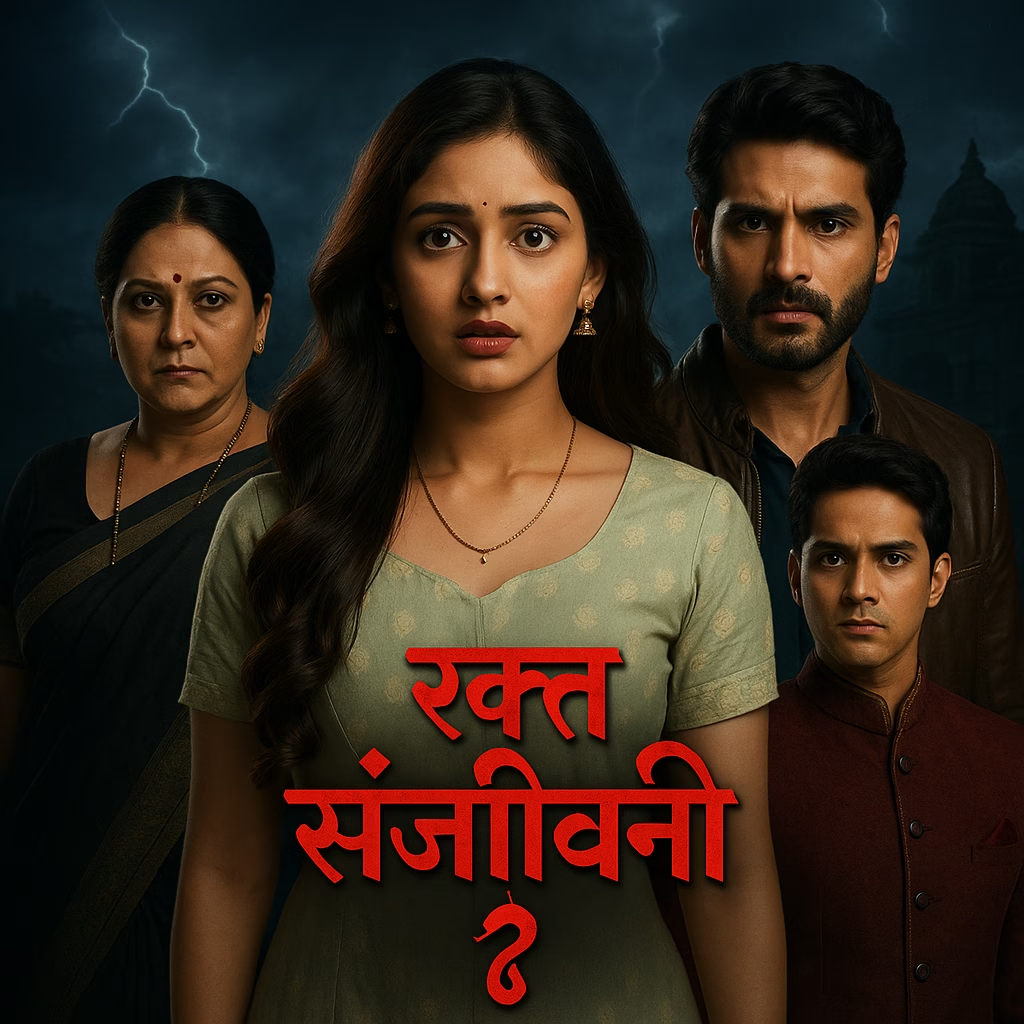
Title: Kali Haveli – The House of Shadows , Fan Fiction
The moon hung low over the winding road to Kali Haveli, its pale light slipping through the dense canopy of banyan trees. A thick mist clung to the earth, and every rustle of leaf or crack of twig sounded like footsteps coming closer. No traveler dared venture this far after sunset—none, that is, except Aarav, a young journalist chasing legends of a haunted mansion that had swallowed fifty lives in as many years.
READ PREVIOUS UPDATE : Megha Chakraborty (AKA Imlie) Joins Jhanak as Ishani, Promises a Story Filled with Secrets and Surprises
Aarav’s heart pounded as he parked his motorcycle beside the rusted iron gates. He clicked off the engine and listened: only his own ragged breathing. His flashlight cut a narrow cone through the mist, illuminating the gates’ ornate spikes twisted into shapes of serpents and skulls. He pushed against the gate; it groaned open as if welcoming a long‐lost friend.
Inside, the overgrown courtyard was littered with broken furniture and shattered pottery. Climbing roses, black with age, strangled the pillars of the crumbling veranda. A stone fountain at the center was cracked and dry; carved figures of nymphs and demons stared blankly into the void. Aarav shivered despite the humid night. The air felt charged—like static before a storm.
He crossed the courtyard and reached the mansion’s massive wooden doors, warped and splintered. With a deep breath, he pushed one open. The door swung inward with a resonant groan that echoed through the empty halls. Inside, the air turned cold. He flicked on his flashlight and found himself in a grand foyer: high ceilings painted with peeling frescoes, marble floors cracked by age, and a grand staircase ascending into darkness.
Aarav switched on his voice recorder. “Aarav Verma, reporting from Kali Haveli. Local legend says the zamindar, Thakur Ajay Singh, vanished here fifty years ago—and every investigator who tried to unravel the mystery disappeared too. I’m going in alone.”
The beam of light danced across the walls, pausing on portraits of stern men and women in colonial attire. Their eyes seemed to follow him. He swallowed hard and climbed the first step. With each creak of the stair, he felt a presence watching from above.
At the top of the stairs, a long corridor stretched into blackness. Doors lined both sides, their surfaces scorched as if by fire. One door at the far end stood slightly ajar, a sliver of pale light leaking through. Aarav’s pulse accelerated. He approached, his shoes silent on the dusty carpet.
Inside the room was a massive four‐poster bed draped in moth‐eaten silk, a small writing desk, and a wardrobe whose doors hung off their hinges. On the desk lay an open journal, its pages yellowed and brittle. He stepped closer, shining his light on the handwriting:
“October 12, 1975. The voices whisper at night. I can feel them in my blood—beckoning me toward the well in the courtyard. I fear what I have become.”
Aarav’s breath caught. He snapped a photo of the page and turned. The door had closed behind him. He yanked at the handle; it wouldn’t move. Panic flared. He pounded the door, shouting, “Let me out!” The hinges rattled, but the door stayed shut.
A low hum filled the room, like a chant rising through the floorboards. Aarav’s flashlight flickered. For a heartbeat the room plunged into darkness, and then the light returned—revealing a ghostly figure at the foot of the bed. She was a woman in a tattered green sari, her long hair matted with dirt, eyes glowing faintly amber. Her lips moved in silence, forming words he could almost hear.
Aarav stumbled backward. “Who… what are you?”
The figure lifted one hand, pointing toward the wardrobe. Aarav obeyed, shining his light on the cracked wood. The wardrobe door creaked open by itself. Inside lay a mirror, its surface dull and scratched. He heard her whisper, as if carried on a breeze: “Look.”
Against his will, he raised the flashlight and peered into the mirror. At first, he saw himself: wide‐eyed, heart thudding. Then the reflection shifted. Behind his image, the room aged and decayed further—walls oozed black ichor, the bedposts twisted into grasping claws. And there, behind him, a shapeless shadow loomed, reaching for his throat.
Aarav recoiled, slamming the wardrobe shut. The ghost faded into mist. He bolted for the door, yanking at the handle again. It gave way with a final wrench, and he tumbled into the hallway. He didn’t stop to look back, racing toward the staircase.
Halfway down, he heard voices: soft, rapid chanting in an unfamiliar language. The light grew colder, and the portraits along the walls seemed to whisper in unison. He sprinted, but every step felt like running through water. At the bottom of the stairs, the foyer doors stood shut, though he had left them open. He stumbled toward them, yanked one door—locked.
A black shape slithered along the floor behind him. He whirled around just in time to see a snake as thick as his arm slip into the darkness. The sound of scales on marble was followed by a whisper: “You belong to us.”
He pressed his shaking hand against the wooden door. Then, from behind, a dozen pairs of glowing eyes appeared in the dark archways—snakes of impossible size and sheen, their bodies coiling and uncoiling with uncanny grace. Their hisses merged into a single voice: “Stay… and join our feast.”
Adrenaline surged. Aarav slammed his shoulder into the door. On the third try, it burst open. He spilled into the courtyard, lungs burning. Rain had started again, bouncing off the fountain’s cracked basin. He raced toward his motorcycle, wet boots slipping in the mud.
Behind him, the mansion’s windows shone like hungry eyes. The chanting followed him down the path, growing fainter as he reached the road. He kicked his leg over the bike, started the engine, and roared away, mist swirling in his wake.
He didn’t stop until he reached the town’s lone tea stall, hours later. His clothes were soaked, breath ragged. The stall owner, an elderly man with trembling hands, offered chai. Aarav’s fingers shook as he held the steaming cup.
“Did you get your story?” the old man asked.
Aarav looked down at his recorder. The red “REC” light was still blinking. With shaking fingers, he pressed play. Static hissed, then a soft voice began chanting in that same strange language—mixed with the rasp of a hundred serpents and one clear, whispered name: “Aarav…”
He slammed the recorder off. The stall owner sipped his tea and nodded knowingly. “Kali Haveli does not let its secrets go easily.”
Aarav pressed his forehead to the table. “I… I barely escaped.”
The old man leaned forward. “The mansion claims its due. Some say you’ll feel it in your dreams. Other say the snakes will come for you, one by one.”
Aarav stared at the steaming tea, every hair on his arms standing on end. In the distance, thunder rumbled. The rain pounded the tin roofs like a drum. He felt the shadows shift behind his closed eyelids.
And somewhere in that relentless downpour, he heard it again—soft, impossible, calling his name:
“Aarav…”

